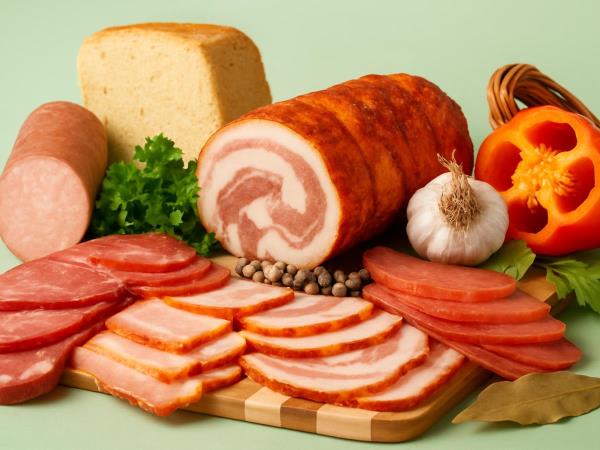After the World Health Organization placed red meat and processed meat products alongside tobacco and alcohol among the most carcinogenic foods, a storm ensued. A storm among producers and a storm among those who can’t imagine a day without meat, sausages, hot dogs, bacon, prosciutto, pate ... Are these products really carcinogenic?
It is foolish that those who made this ranking now want to water down their decisions. Most often they hide behind the statistic that red meat and meat products cause cancer in only 3% of cases, which is small compared to other foods. However, if there are ways to avoid carcinogenic foods, the best way is to educate consumers. Also, because it’s in the producers’ best interest that their customers are satisfied and will quickly adapt. So it is in everyone’s interest to work towards and eat better food, right.
That’s why we offer you some advice on how to tell the wheat from the chaff among meat products.
Of course, it starts with reading the label. If you come across the label MSM, which means mechanically separated meat, never buy such products. This means that the meat is often ground together with bones, which contain the highest amounts of antibiotics, hormones, heavy metals, and other toxins that the animal has eaten. Most often you’ll find this label on sausages, hot dogs, and pate.
Another issue are the various flavor enhancers, emulsifiers, preservatives ... Definitely avoid the labels E249, E250, E251, and E252. These indicate that the product contains emulsified nitrates, i.e., (too) high amounts of salt. The most dangerous and very common emulsifier is carrageenan or E407, which is marked as a very carcinogenic substance. It sticks to the intestinal wall and prevents the body from absorbing nutrients, and in the stuck areas, it causes small wounds from which intestinal cancer can develop. One more important warning: carrageenan or E407 is a natural plant-based thickener. Not everything natural is also good for health. Don’t fall for promises that only natural substances are used. Some can be very harmful.
If you see the labels E451 (tripolyphosphates), E452 (polyphosphates), or E453 (phosphates), immediately return the product to the shelf. Behind these labels are hidden carcinogenic nitrosamines and polyphosphates. They damage our genes, so be especially careful that children don’t eat such foods. In older people, these substances can suddenly trigger diseases that have been dormant and not bothering us for years.
If you have read anywhere that a product contains the flavor enhancer glutaminat or glutamate, do not buy that product either. This means that the product does not contain meat, or the proportion of meat is lower than you’d expect. It’s similar to juices, when there’s only 20% juice and the rest is water and chemicals. Meat is expensive, so manufacturers resort to substitutes.
Also pay attention to the appearance of the meat. If the meat is marbled with fatty veins, then the animal was well-fed. If there are no such veins, and water drips from the meat, this is evidence that the animal was given growth hormones and antibiotics. It’s even more dangerous if you grill such meat, because it then produces feed dioxins, which are highly carcinogenic.
Datum: 13. NOV 25 - GOOD TO KNOW
Food that Turns Us Into Cancer Patients
It is wrong that the World Health Organization is trying to downplay the significance of its own carcinogenic food ranking. It would be right for consumers to recognize harmful meat products. Do you know how?
(FW)
 Would you like to be informed about news on the website?
Would you like to be informed about news on the website?
Just enter your e-mail
Carcinogenic food
World Health Organization
Harmful meat products
Meat product labels
Avoiding carcinogenic foods
|
Copyright (c) Foodwhisper.com March 2018 |
π | Contact: info@foodwhisper.com |
About us | Facebook |  |









